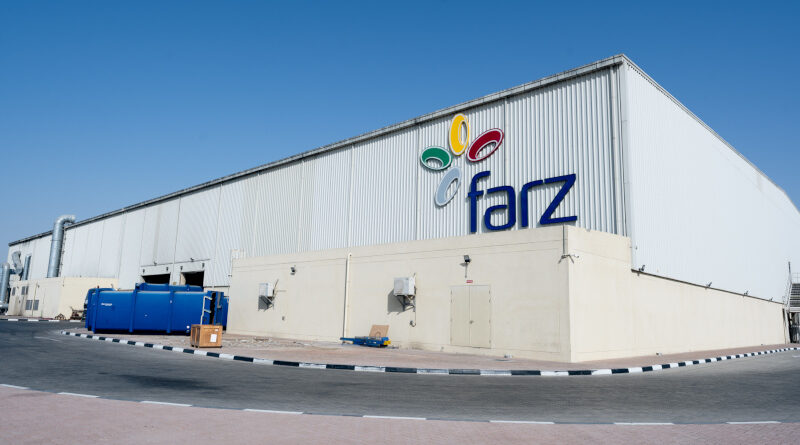First automated materials recovery facility in UAE
Tomra Recycling Sorting’s sensor-based sorting technology is helping to recover high-quality, high-purity value recyclates at Farz, the first automated MRF in the United Arab Emirates (UAE). The 1,200 tons per day plant has two separate lines – one for municipal solid waste (MSW) and the other for commercial and industrial (C&I) waste. Six Tomra Autosort units are spread across the lines and used to identify and separate plastic materials from the infeed waste streams, and to sort HDPE and PET from mixed 3D plastics.
Farz is owned and operated by Imdaad, a leading integrated facility management company in the Middle East. The plant is built on a 45,322 m2 plot in Dubai’s National Industries Park, a 21 km2 area of specially designated land in the heart of Dubai’s new industrial district. Imdaad is responsible for the collection of C&I waste from the Jebel Ali Free Zone (Jafza), a free economic zone located in the Jebel Ali area at the far western end of Dubai in the UAE. Imdaad’s mission for the Farz plant is closely aligned with Dubai’s target to hit zero waste to landfill by 2030.
The process
Infeed waste arrives by truck to Farz’s reception area where, following a pre-sorting stage, the MSW and C&I waste are separated into two lines; one for MSW and the other for C&I waste.
Shredders on both lines break down the material and trommels separate the infeed material into different fractions based on size. On both lines, the valuable fractions (80 – 300mm) are passed onto the next stage of magnetic separation and the <80mm organic waste and inert fractions smaller are diverted directly to the landfill. Any >300mm material is returned to the feeding area to go through the shredder process again. Magnets and eddy current separators sort the metals into ferrous and non-ferrous metals, removing them in preparation for the next sorting stage.
Once the metals have been recovered from both the MSW and C&I lines, the first Tomra Autosort units in each line separate a mixed plastics fraction for further processing into three target fractions: 3D (bottles and plastic containers), 2D (film, cardboard, foil and textiles) and fines. The remaining material passes through a second Autosort unit on each line to separate a mixed paper/cardboard fraction. The residual waste is transferred to a Refuse Derived Fuel (RDF) bunker prior to being sold for use in energy from waste (EFW) plants. The final two Autosort units – one on each line – separate out HDPE and PET from the 3D fraction before the material undergoes a final manual quality control check.
This phased process enables Farz to produce high-quality end fractions of HDPE, PET, aluminum, ferrous metals, OCC, wood, PE bags and RDF. These fractions are baled and sold on to recyclers within the UAE and exported worldwide.
With up to 320,000 scan points per second, Tomra’s Autosort high-resolution sensors are claimed to collect data on multiple characteristics at high speed to ensure accurate identification of a wide range of materials. Thanks to Flying Beam technology, homogeneous light distribution is guaranteed for better detection and monitoring across the entire belt width, distinguishing even the finest molecular differences of materials flowing along the line, says Tomra. The latest generation of Autosort also incorporates Sharp eye technology as standard, which is intended to ensure improved light efficiency and sorting clarity, facilitating the separation of difficult-to-sort fractions such as PET from bottles and trays.

